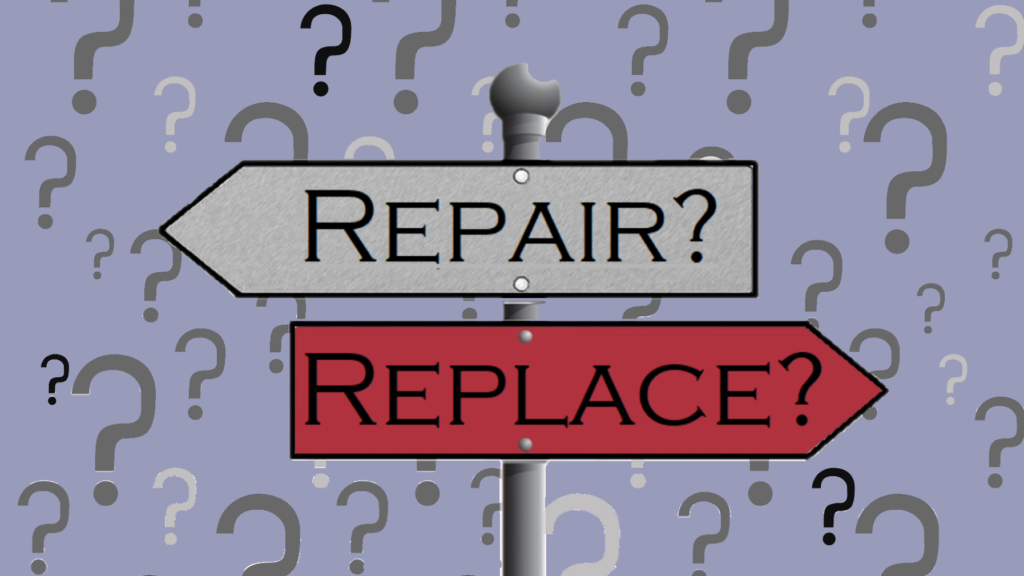To Repair or To Replace?
To repair or to replace? That is the question
whether tis nobler in the shop to suffer
the slings and arrows of outrageous repair fortunes,
or to take arms against a sea of machinery troubles,
and by opposing these forces, buy new?

The decision to repair or replace your broken air compressor may seem as dire a choice as Prince Hamlet’s. Fortunately, unlike Hamlet, you are not alone in making a choice. Instead, you have access to the knowledge and advice of compressed air professionals.
Cost remains at the heart of the question of repairing or replacing. Ultimately, the decision becomes an economical one. However, this analysis is actually more complicated than it seems. Comparing pure costs is not comprehensive enough. There’s also lifetime costs, future expenses, and production returns to consider. The best assessment includes the following factors.
Compressor Age:
Just like any machine, air compressors wear out over time. Parts don’t mesh as well, pieces lose stability, and production levels suffer. These natural side effects of age complicate the machine’s response to repairs. Though fixing one section of the machine may be easy, other parts may only support the repair for a short time before they too need to be fixed. Repairing older machines often leads to a cycle of short-term fixes that can quickly add up financially and cause significant overall loss of production time.
Compressor Reliability:
Understanding your air compressor’s history is really important in deciding whether to repair or replace it. Knowing the past character of the machine can be useful when assessing it. Has the compressor had a history of problems since the beginning? Has it needed multiple adjustments to ensure proper function? Or, is this the first time the machine has ever caused major problems? These answers will help categorize your machine’s reliability. The more trustworthy the machine is, the more likely the repair is to last long-term. Compressors with a history of problems or inconsistency bode poorly that a repair will be sufficient. Instead, a new machine might be best.
Compressor Energy Efficiency:
The compressed air industry constantly innovates and improves, often in the form of increased energy efficiency. Air compressors can be very large energy users, in fact Energy Star estimates that up to 75% of the lifetime cost of a compressor comes from its electricity use. If fixing the broken machine will still leave you with a model significantly behind the capabilities of other newer models, replacing may be a more cost-effective solution. When the majority of cost comes from electricity use, you’ll want to minimize the amount of needed electricity.
In general, repair air compressors that are relatively new, reliable performers, or comply with technological advances. These are the machines where investing in the existing machines are most likely to have the greatest return. Whereas, older, unreliable, and inefficient compressors probably will not weather the repairs for long, costing more overall.
If purchasing does seem to be the best option, but your company doesn’t have the required capital, there are ways to defer the cost. CASCO USA offers both leasing options as well as long-term rentals. For more information about when the best times to rent may be, read our blog on the topic here.
Still uncertain what is best for your company? Request help from our compressed air professionals. Sales engineers can talk through the pros and cons of different options with you. They bring their compressor knowledge to spot areas of repair and to help you understand if a replacement is more cost effective. Call us and together we can work through your company’s decision.
Comments are closed.
